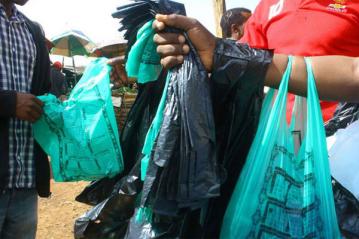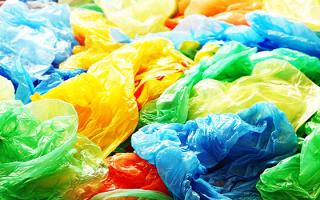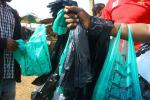This is the 15th case study from SUEUAA (Strengthening Urban Engagement in Universities in Asia and Africa), written by Dr Mpoki Mwaikokesya of the University of Dar-es-Salaam and concerns the contribution of the university to combatting pollution by plastics in his city. Globally there has been a long-term concern over plastic environmental pollution. Even though there has been a general trend where many countries have been adopting some kind of legislation to regulate the manufacturing and use plastics, there are many others which have not yet taken any measure.
One of the explanations why the issue of plastic bags pollution becomes a major concern is because most of the plastic bags produced are designed to be used just once and then discarded, resulting in mass amounts of chemically-laden debris landing into oceans and littering landscapes (UN Environmental Programme).
Some of the recent studies conducted in this theme, suggest that the plastic bags pollution is more critical in urban areas because of the concentration of socio-economic activities and escalating population growth (Moharam & Maher, 2014).
Just like other regions in the world, the city of Dar-es-Salaam in Tanzania, (which is one among the Africa populous cities) faces a challenge of plastic pollution. For instance, a study conducted by Maembe (2006) in Dar-es-Salaam noted that plastics constituted about 12 percent of solid waste generated per day in the city. It was further noted that although plastics waste constituted a small percentage of the total solid waste generated, it posed serious problems to the city residents and to the waste water disposal infrastructure, thus making waste collection and disposal activities relatively difficult. The problem of plastic bags pollution in Dar-es-Salaam has also serious due to reasons such as, the city being bordered by ocean in which plastic wastes entering into ocean turns into microplastic debris.
A recent study by Shilla (2018) noted that the issue of microplastic debris in both marine and freshwater systems has grown into one among the emerging issues in Tanzania, causing serious environmental effects. According to this study, there had been a rampant inappropriate disposal of waste plastics that lead into serious environmental problems.
Not only that but also the plastic pollution environmental problem is serious because there had been relatively minimal availability of recycling activities of materials such as waste papers, metals, glasses, plastic bottles and used tires such that most of them are discarded as trashes, with a significant percentage of them ending up polluting natural habitats and causing environmental harm. Data cited by Shilla (2018) from environmental volunteers, suggest that during cleanups in some of the Dar-es-Salaam city areas most anthropogenic litter along the beaches comprised of plastics, posing a huge threat that plastic pollution could turn into wide-ranging ecological and economic impacts in both marine and freshwater environments.
It has also been reported that the issue of plastic bags pollution and waste management problem is more pronounced in squatter settlements, where most people reside without the necessary infrastructure and social services. Regarding the effects of plastics pollution, the WWF Country Director in Tanzania, notes that the plastic bags pollution was becoming a number one polluter of environment and a silent killer of natural environment and resources affecting all biological spectrum, and posing risks to human health and wildlife.
Clearly, the above presented trend on environmental pollution situation illustrates the scale of the plastic bags pollution, not only in the city of Dar-es-Salaam, but also in other regions of Tanzania. In some of the urban areas for instance, it had been reported that the majority of the domestic wastes generated daily were not collected and most of them were disposed by burning or burying them in the ground.
As one of the complex societal environmental challenge which requires a sustainable long-term solution, the issue of environmental pollution suggests the need for collective efforts and inputs from universities and other stakeholders. It further suggests the need for universities and other agencies as vital and powerful drivers of global innovation and economic development to engage in addressing this and other challenges.
The University of Dar-es-Salaam (UDSM) in Tanzania for example has clearly stated its responsibility, which is reflected in its mission encompassing a wider scope of activities declared as: “the unrelenting pursuit of scholarly and strategic research, education, training and public service directed at the attainment of equitable and sustainable socio-economic development of Tanzania and the rest of Africa.” (UDSM, 2011). Under this mission the UDSM considers itself as having a core function of providing public services to the community so as to address the country’s existing and future social problems, through consultancy and outreach programmes.
 As far as the issue of plastic bags environmental distress is concerned, the University engages itself by using different pathways, namely, by sharing its staff knowledge, skills, experiences and expertise. In this issue the university engages via Chemistry Department University staffs in the College of Natural Sciences (CONAS), who conducted a study to evaluate the status of plastic bag industries and possibility of producing alternative bags in Tanzania (Kilulya, Mahugija, Ilomo et. al, 2018, cited in UDSM, 2019).
As far as the issue of plastic bags environmental distress is concerned, the University engages itself by using different pathways, namely, by sharing its staff knowledge, skills, experiences and expertise. In this issue the university engages via Chemistry Department University staffs in the College of Natural Sciences (CONAS), who conducted a study to evaluate the status of plastic bag industries and possibility of producing alternative bags in Tanzania (Kilulya, Mahugija, Ilomo et. al, 2018, cited in UDSM, 2019).
Among other things the study assessed the available plastic bag industries in the country, their economic contributions and possibility for them to produce alternative bags. The findings in this study suggested that despite the recycling efforts taken by various plastic industries, there was a still high level of pollution caused by plastic bags and other plastic materials, leading into serious environmental problems.
In this study, it was recommended that the elimination of plastic bags was a necessary step to decreasing the amount of waste and pollution. It was further recommended that all plastic bags should be replaced with alternative biodegradable and reusable bags (paper bags, woven and nonwoven bags). The findings from the Chemistry Department were also confirmed by other subsequent studies such as the one conducted by Shilla (2018) regarding the status updates on plastics pollution in aquatic environment of Tanzania. In this study it was onserved that plastic wastes could potentially enter the aquatic environment where subsequent degradation could form microplastics. It was therefore alerted that without improvements of waste management systems, the cumulative quantity of plastic waste entering the ocean from land would increase.
Given the gravity of the effect of plastic pollutions and partly as a result of inputs from various stakeholders in the country, in 1st June 2019, the Tanzanian government through the Vice President office officially started enforcement of full implementation ban on the retail distribution of plastic bags under the 2019 Plastics Carrier Bags Regulations. The enforcements of this ban was implemented in tandem with restrictions on manufacturing, production and imports of single-use plastic, polythene bags in order to protect the environment. More specifically this historic move included ban on the usage, supply, sale, importation, storage and exportation of plastic carrier bags by companies/industries and individuals. By introducing this move, the city of Dar-es-Salaam and the country at large, join other cities and countries in Africa (for example Nairobi in Kenya and Kigali in Rwanda) that had either banned or introduced a levy on plastic bags to control and eventually tackled plastic pollution. Under this new legislation, industries and investors are encouraged to promote the production of alternative carrier bags in place of plastics, such as paper manufactured bags. The regulations however, exempts plastics used in the packaging of medical, industrial, construction, agricultural and waste management materials.
It appears from the case presented above that universities are key and critical institutions that can effectively connect and share their knowledge, skills and experience with stakeholders in their regions such as public policy and service delivery agencies so as to meet the challenges of sustainable development. As realised in this case, university plays a crucial role in many aspects including, raising public awareness and facilitating informed decision-making, responsible behavior and consumer choice. They are key agents who may play role as significant contributors to the economic, social and cultural spheres.
References
Maembe, A. (2005). Plastic Recycling Creates Employment in Dar-es-Salaam: poverty and environment, Vice President Office, vol.1, pp.4- retrieved from https://www.unpei.org/sites/default/files/PDF/TZ-PEINewsletterVol1.pdf
Moharam, R. & Maqtari, M. (2014). The impact of plastic bags on the environment: A field survey of the city of Sana’a and the surrounding area, International Journal of Engineering Research and Review, 2(4), 61-69.
No way, Government rejects plastic dealers. (2019, April 13). The Citizen, retrieved from https://www.thecitizen.co.tz/news/-No-way--govt-rejects-plastic-dealers--plea/1840340-5069754-5xvgrnz/index.html
Shilla, D. (2018). Status updates on plastics pollution in aquatic environment of Tanzania: Data availability, current challenges and future research needs, Tanzania Journal of Science, 45(1): 101-113.
UDSM. (2011). Report on the Visit of Vice Chancellor's Panel to the UDSM. Dar-es- Salaam: UDSM.
UDSM. (2019). Book of Abstracts: 5th research week. Dar-es-Salaam: UDSM.


